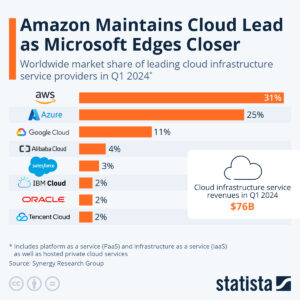
Having a cohesive online presence is a critical piece of the business success puzzle. One of the biggest pieces of that puzzle is your website and, by extension, web hosting. The best web hosting providers not only keep your site up and running but they secure it, provide support and offer opportunities to improve your ability to connect with customers.
We did the leg work for you, rounding up the 10 best shared web hosting companies so you can make the right decision for your website — and make it fast. After all, the faster your website is up and running, the sooner you’ll reach customers.
Methodology
To help small businesses choose the best web hosting service for their needs, we evaluated 21 top shared web hosting service providers and 65 distinct plan options using more than 2,200 data points to develop a ranked list. We assessed each web host’s value, service and support offerings, user reviews and included features. We assigned our Editors’ Score to each product before selecting the 10 that rose to the top of our ranked list for inclusion. Read our full methodology here.
Show summary
-
DreamHost
: Best for WordPress users who want shared hosting
-
Wix
: Best for entrepreneurs with multiple businesses
-
Hostinger
: Best for businesses that want to use AI
-
GoDaddy
: Best for businesses that want versatility
-
Kinsta
: Best for bespoke projects and managed WordPress hosting
-
InMotion
: Best for businesses that want a long-term host
-
Interserver
: Best for businesses that want a one-size-fits-all approach
GreenGeeks
Best for eco-conscious businesses

Why we picked it
Billing itself as the world’s leading eco-friendly web hosting provider, GreenGeeks focuses on offering fast and secure hosting while positively impacting the environment. Since 2008, it claims to have returned three times the amount of power it’s consumed to the power grid as renewable energy.
Lorem ipsum
GreenGeeks boasts robust hosting plans that include a lot of functionality even at the lowest tier, including unlimited bandwidth, a free SSL certificate, a free domain for the first year and a 30-day money-back guarantee. If you have dedicated staff to help manage your website, you also get multiuser access on all plans.
Lorem ipsum
While the $11.95 per month Lite plan only supports one website with GreenGeeks’ “standard” level of performance, the Pro ($16.95 per month) and Premium ($26.95 per month) plans support unlimited websites with “better” and “best” performance, respectively. GreenGeeks also includes some nice-to-have extras to protect your site — like free nightly backups and AI-powered DDoS protection — as well as access to over 150 one-click install apps to customize your site’s functionality. (A distributed denial-of-service (DDoS) attack goes after websites and servers by disrupting network services.)
Lorem ipsum
While GreenGeeks isn’t one of the cheapest providers on our list, it’s one of the best web hosting options out there. The good news is that you get what you pay for, with even GreenGeeks’ Lite plan offering substantial features and little to no gaps when it comes to your core hosting needs.
Pros
- Eco-friendly mission
- Well-equipped base plan
- Unlimited bandwidth on all plans
Cons
- On the higher-priced end of our best website hosting picks
- On-demand site backups only for higher tiers
- Some customer reviews reference account suspension (though GreenGeeks has responded to these customers and published some terms of use regarding account suspension)
Who should use it
With the strength of its hosting features, cool perks like one tree being planted for every new customer that purchases a plan and a 300% green energy match pledge, GreenGeeks is a no-brainer for eco-conscious business owners. However, if you’re just starting out with a relatively low budget for web hosting, there are more affordable options available.
Namecheap
Best for businesses on a budget

Why we picked it
Namecheap lives up to its name; it’s the cheapest provider on our list and our pick for the best web hosting provider for budget-conscious businesses. Its base Stellar plan starts at $4.48 per month with the option to reduce the cost even further by selecting a one- or two-year subscription, making Namecheap simply unbeatable when it comes to cost.
Lorem ipsum
That value does come at a cost of its own, however, with some less-than-stellar features on the base tier, including limited storage (20GB) and site backups only twice a week. You’ll still enjoy unmetered bandwidth and 24/7 support, which can be incredibly helpful for business owners who work odd hours or appreciate access to live guidance.
Lorem ipsum
Stepping up to the Stellar Plus or Stellar Business plans alleviates some of those concerns (and still represents a good value compared to competitors). At $6.48 per month, Stellar Plus nets you unlimited websites (versus three on the base plan), unmetered SSD storage and auto-backup capabilities (especially important for frequent site updates).
Pros
- Lowest-priced web hosting service on our list
- Basic plan includes three websites
- Unlimited bandwidth on all plans
Cons
- Limited to 10 email lists on lowest tier
- No automatic site backups on lowest-tier plan
- Only 20GB SSD storage on lowest tier
Who should use it
Namecheap is an excellent entry into web hosting for businesses that want to spend as little as possible. The lack of advanced features on its basic plan is to be expected at such a low price point, but aspects like multiple websites (three), free automatic SSL installation and a 100% uptime guarantee keep even the lowest tier enticing.
Interested in making an affordable website to pair with your cheap web hosting service? We rounded up the cheapest website builders around.
Why we picked it
As one of the highest-rated web hosting providers on our list, it’s surprising that DreamHost is also one of the cheapest. At $7.99 per month for its Shared Starter plan, DreamHost limits you to a single WordPress website while still providing unmetered site traffic as well as a 97-day money-back guarantee.
Lorem ipsum
Where DreamHost really makes an effort to market its services is WordPress. With automatic WordPress installation, automated WordPress migration and a drag-and-drop site creation wizard, it offers everything you need to hit the ground running (or keep up the pace) with your business’s WordPress site.
Lorem ipsum
The Shared Unlimited plan ($13.99 per month) comes with some notable upgrades: support for multiple websites, unlimited storage (up from 50GB) and no extra cost for email accounts from your domain, just to name a few.
Lorem ipsum
As far as drawbacks are concerned, DreamHost doesn’t offer much in the way of niche or advanced features. This is likely by design due to its simplified, two-tiered plan structure, but it’s something to be aware of if you crave back-end customization or more advanced security options.
Pros
- 97-day money-back guarantee
- Robust feature set for WordPress users
- Unmetered bandwidth/unlimited site traffic on all plans
Cons
- Shared Starter limits storage to 50GB
- Lack of niche features for users that like to tinker
- A custom business email domain costs extra on Starter plan
Who should use it
Businesses that love WordPress should explore DreamHost. With a simplified plan structure, pricing on the lower end of our list and plenty of features to make your WordPress life easier, it’s a great option for the many small businesses that rely on WordPress for their web hosting needs.
Interested in WordPress? We priced it out for you.
Wix
Best for entrepreneurs with multiple businesses

Why we picked it
Wix is the third most expensive option on our list. While it generally offers extensive features to match, those features don’t come with the lowest-tier Light plan, where you’re limited to a scant 2GB site storage, a maximum of two collaborators and no extras like e-commerce support, service selling or industry-specific support.
Lorem ipsum
It’s clear that the Light plan is a basic taste of what Wix has to offer. The next step up in Wix’s pricing structure is the Core plan at $29 per month, which boosts storage to 50GB while adding much-needed e-commerce support and a basic marketing suite that includes the ability to chat with customers on your site — a huge boon to business owners looking to connect with customers and keep them happy.
Lorem ipsum
A drawback to Wix’s extensive offerings is that they can become confusing if you’re not sure what you’re looking for. With four plans ranging from $17 per month to $159 per month and a whole host of extras that not all businesses need, it’s important to determine what you want out of a web hosting provider before selecting one. Ultimately, you can get away with a cheaper alternative if you don’t need, say, support for managing a fitness business or selling tickets to events.
Pros
- Over 900 free, customizable website templates
- 24/7 customer care
- Free domain for the first year on all plans
Cons
- Extremely limited storage space on the base plan
- No e-commerce on the first tier
- Extensive plan options can be overwhelming
Who should use it
Some business owners might shy away from the high price tag, extensive plan options and niche extras. But for entrepreneurs with multiple business ventures, Wix may be just what the doctor ordered. Ultimately, if you’re unsure exactly what you want out of a web host and enjoy experimentation, Wix is a strong option with its industry-specific features and access to over 900 templates to make designing your website (and standing out from the crowd) easy.
Hostinger
Best for businesses that want to use AI

Why we picked it
Hostinger comes in at the middle of the pricing road compared to other providers on our list, and that assessment also matches its feature set. With its base Premium plan, you’ll get the basics and a few additional features in the security and support department but not things like AI-assisted marketing tools or e-commerce support. For those, you’ll have to step up to Hostinger’s “most popular” Business plan, which also adds increased performance, a free CDN (content delivery network, which caches content on distributed servers so websites can pull from the closest server to a user, increasing website speed), increased storage and daily backups (especially important for businesses who update their site frequently).
Lorem ipsum
The base plan supports a whopping 100 websites and includes 100GB of site storage — both of which are on the high end for base paid tiers. You’ll also enjoy the fairly typical service and support you can expect from a premium web host in the form of a 30-day money-back guarantee, 99.9% uptime guarantee and 24/7 live chat support.
Lorem ipsum
Ultimately, the high point of Hostinger’s offering is its AI website creation tools. If you opt for the Business plan, you’ll enjoy a host of AI-assisted features like copywriting help, heatmaps to track customer engagement and SEO tools to grow your search engine footprint. Hostinger is particularly well-primed to serve business owners who need to build websites — and more than one, at that — easily and fast.
Pros
- Support for 100 websites on the base plan
- Free business email, domain and SSL on all plans
- AI-assisted website builder
Cons
- Standout features require purchasing at least the mid-tier plan
- No e-commerce support on the base plan
- Priority support locked behind the most expensive plan
Who should use it
Simply put, Hostinger is best for entrepreneurs interested in AI or those who plan on creating multiple websites. The base plan gives you up to 100 websites, and the mid-tier Business plan brings access to a bunch of useful AI assists that can boost site visibility and save you time, a win for busy business owners.
Related: How companies are embracing generative AI for employees…or not | CNN Business
GoDaddy
Best for businesses that want versatility

Why we picked it
GoDaddy is one of the biggest names in the game and offers one of the largest feature sets (and number of available plans). Starting at $9.99 per month for the Web Hosting Economy plan, GoDaddy isn’t the cheapest on our list — but it isn’t trying to be.
Lorem ipsum
You’ll get everything you’d expect from a web host — and we mean everything. With a free domain for one year, 30-day money-back guarantee, a free trial of its business email add-on, free WordPress migration, automatic daily backups, unmetered bandwidth and the benefit of global data centers, you’d be hard-pressed to find something GoDaddy doesn’t offer. It’s worth noting, however, that its base plan only supports one website with 25GB of storage.
Lorem ipsum
For businesses that don’t quite know what they want out of a host and have a little more budget to play with, GoDaddy almost surely offers a plan that fits your needs. At the end of the day, GoDaddy is a trusted name that’s been in the web hosting game for decades. Because of this pedigree, you’ll get the options, support and features that you’d expect from a premium web host at a fairly average cost.
Pros
- Established pedigree; one of the most recognizable and reliable web hosts in the industry
- Includes a wealth of features at various price points
- Lots of freebies even on the base plan
Cons
- Large number of plan options can be overwhelming to sort through
- Only one website on the base plan
- Relatively low storage on the base plan compared to competitors
Who should use it
Growing businesses can take advantage of all the features GoDaddy offers. With so many options comes a lot of versatility, and you also get the authority and reliability that comes with choosing one of the more-tenured providers in the space.
Kinsta
Best for bespoke projects and managed WordPress hosting

Why we picked it
Kinsta is one of the more unique providers on our list. It doesn’t offer traditional hosting options, instead choosing to make a name for itself by specializing in application, database and managed WordPress hosting. In 2016, it changed course by consolidating its entire infrastructure from multiple providers to Google Cloud Platform (GCP) on Google’s Premium Tier network.
Lorem ipsum
Essentially, this allows Kinsta to offer performance that’s a cut above its shared hosting competitors. Having everything housed within GCP on the Premium Tier gives Kinsta customers access to the fastest data services, server-level caching for increased efficiency and dedicated resources when they’d normally be shared.
Lorem ipsum
Kinsta offers seven total managed WordPress plans which — since the plans are all various versions of the WordPress experience — proves to be a flexible and granular way to lay out its offerings. The Starter plan supports one website for $35 per month, which is a higher price point than others on our list, but keep in mind that these are dedicated resources and a managed hosting experience with enterprise-level resources. Plan features and the number of websites increase incrementally from there.
Lorem ipsum
The main drawback to Kinsta is that it’s very specific. If you’re not using WordPress or you don’t have a special project like a web-based app or database to manage, it simply won’t work for you.
Pros
- Enterprise-level managed WordPress services
- Top-tier performance for WordPress users
- Plan flexibility allows businesses to choose an option that fits their specific criteria
Cons
- Only good for WordPress users or those with bespoke database or app projects
- Base plan is the most expensive on our list
- No e-commerce or membership support on the lowest two tiers
Who should use it
If your resume says “WordPress power user,” you should be on Kinsta. While DreamHost represents an all-in-one platform with WordPress features, Kinsta is designed to increase WordPress performance and offer enterprise-level service at small-business-level prices.
InMotion
Best for businesses that want a long-term host

Why we picked it
InMotion is a well-established hosting provider. While it doesn’t offer anything mind-blowing in the way of specialization, InMotion does offer what you’d expect from a well-rounded, all-in-one hosting platform, including basics like unlimited bandwidth, support for multiple sites and up to 10 email addresses even on the base plan.
Lorem ipsum
This also includes extra security features you won’t get from competitors’ low-tier offerings, including hack, malware and DDoS protection, as well as automatic backups. The catch is that you will have to pay for it. InMotion’s starting price is the second-highest on our list if you want to pay month to month (which is only allowed for the highest-tier plan); prices decrease significantly if you’re willing to commit to a one- to three-year subscription.
Lorem ipsum
Ultimately, the specificity around terms and restricting a monthly price to the highest tier are InMotion’s main drawbacks; otherwise, you have a solid hosting provider with great features and around-the-clock customer support from humans.
Pros
- Advanced security features available on the base plan
- 24/7/365 customer support
- Python, Node.JS, Ruby and GIT version control support on base plan.
Cons
- Limited to one plan option if you want to pay monthly
- No free domain on monthly plan
- Some support types and e-commerce limits on certain plans
Who should use it
If you’re open to (or set on) paying for web hosting on an annual, two-year or three-year basis so you can set it and forget it, InMotion is an excellent option. You’ll save money, enjoy a multitude of features and have access to trusted customer support from live agents whenever you need them.
Interserver
Best for businesses that want a one-size-fits-all approach

Why we picked it
Interserver is an incredibly affordable one-size-fits-all option. It has a surprising number of features for only offering one plan at such a cheap price, including unlimited, well, most everything: storage, data transfer, file transfer protocol (FTP) accounts and email accounts.
Lorem ipsum
It also supports mobile operating systems across the board for email (calling out even Blackberry and Windows Mobile). On top of that, you’ll get weekly backups, access to over 450 cloud apps to finetune your site’s performance and services like Interserver’s InterShield Security, Inter-Proxy Caching and Inter-Insurance. These proprietary features help block web attacks, improve site speed and clean up hacked or exploited customer accounts, respectively.
Lorem ipsum
One downside to Interserver is that it doesn’t come with a free domain name, which does slightly tarnish the value of its low base pricing.
Pros
- Only one available shared hosting plan makes for an easy decision
- One of the cheapest options on our list
- Wealth of features for the cost
Cons
- Lack of plan flexibility could be a drawback for some
- No free domain name
- Some online user reviews report issues with its support team, especially around billing
Who should use it
If you want a cheap, one-size-fits-all approach to web hosting, Interserver is for you. With a variety of attractive features and a bevy of included services to improve site performance, it’s a great choice for businesses that don’t have the time or patience to be bogged down by the minutiae of more complicated options.
AccuWebHosting
Best for businesses that require daily site backups

Why we picked it
With a starting price on the lower end of the list, many valuable freebies and a relatively simple plan layout, AccuWeb is a great alternative choice for budget-conscious businesses or those who value simplicity (and haven’t already chosen Namecheap or Interserver for those reasons). Its real claim to fame, as far as our list is concerned, is free stuff — with the biggest one being free daily site backups. This isn’t common among other providers, especially at lower tiers, and it can be a real selling point if you frequently tinker with your site.
Lorem ipsum
Aside from that, AccuWeb places a premium on freebies in general, and we think a lot of business owners do as well: free templates, free managed support, free SSL certificate, email, daily backups and site migration — you name it.
Lorem ipsum
The downside to this is that some of the more premium aspects fall by the wayside. There’s no unlimited storage or bandwidth, which is a definite cause for concern for media-rich or highly trafficked sites, and it doesn’t provide a free domain unless you opt for the highest tier.
Pros
- A fairly inexpensive hosting option
- Tons of free features.
- Free daily backups (a rare perk on base plans)
Cons
- No unlimited storage or bandwidth
- Only one website available on the base plan
- Free domain registration limited to highest-cost plan
Who should use it
If Namecheap and Interserver aren’t your style or you like free stuff, AccuWebHosting does present a nice alternative. Its biggest advantage over other providers is free daily site backups, which can be a huge boon to those who update their site regularly.
Compare top web hosting providers
What is web hosting?
Web hosting is a service that stores information about websites or web applications so they can be accessed and interacted with by people online. Files, images, video, text and any technical information that a site needs to function are stored on a web host’s servers.
The web hosting provider maintains these servers to ensure that websites continue running smoothly, addressing any technical or security issues that threaten operations. This allows business owners to focus on running their business without worrying about keeping their website up and functioning on a daily basis.
Benefits of shared web hosting
Shared hosted is one of the most common types of web hosting, along with virtual private server (VPS) hosting and dedicated hosting. It shares resources between multiple websites instead of using dedicated servers for each website. The top two benefits of shared web hosting for small businesses are:
- Low cost: Shared hosting is the cheapest form of web hosting, making it more accessible to a larger number of businesses.
- Ease of set up and use: Since shared hosting is so common, there are a lot of providers to choose from. These providers package shared web hosting in plans that include varying levels of helpful features needed to set up and maintain websites, such as installation and migration services, security protocols, maintenance features and even marketing and SEO tools.
Essential web hosting service features
Since the best web hosting providers offer similar features, it’s important to know what to look for. If key functionality is missing, strike that provider off your list.
- Domain name: One of the most important yet basic aspects of web hosting is domain name provision. Your website needs an address, and most providers offer a free domain for the first year if you agree to a certain contract length.
- Secure sockets layer (SSL) certificate: This digital certificate authenticates a website’s identity and enables encrypted connections. This is especially important for businesses that collect payments and store sensitive customer information. Like domain names, you want a web host that includes an SSL certificate with their services.
- Integrations: Many web hosting providers offer add-ons or integrations — first- and third-party — that augment website performance and expand overall functionality for your business. When choosing a provider, ask whether or not it can integrate with your existing tools.
- Business email: These email addresses originate from your domain name and lend a sense of legitimacy to your business and website. Some providers include one or multiple business email addresses, while others offer limited addresses or email as a paid add-on. Still others take the integration route, partnering with a service like Google Workspace or Microsoft 365.
- Advanced security: Website security is critical, especially when you’re running a business that collects and stores sensitive customer information like payment methods, addresses and contact info. The best hosts all include hack, malware and DDoS protection to secure your websites from bad actors.
How much does web hosting cost?
Hosting costs vary by the type of hosting you choose. Shared hosting is often the cheapest form of web hosting, while others like VPS, dedicated, cloud and WordPress hosting vary widely in cost based on your chosen provider and plan.
Typically, web hosting providers divide their services into plan tiers that offer more or fewer features based on how much you’re willing to pay. The main way to reduce hosting costs is to commit to an annual (or longer) term, as most (if not all) providers offer significant discounts for doing so.
You can also tweak your costs by looking for things like a domain name and SSL certificate for free or opting for a lower tier and filling in feature gaps with integrations and add-ons offered by hosting companies or third-party developers.
*Based on pricing research from some of the most popular providers.
Methodology: How we chose the best web hosting services
To help small businesses find the best web hosting service for their needs, we researched top shared web hosting services using a specific set of desired data points. After we collected this data, we narrowed our list to 15 unique entries of service providers based on four primary categories encompassing 35 different metrics. We weighted each metric based on what matters most for your business. Using the final score for each web hosting service, we selected the 10 that rose to the top for this list.
We assigned each web hosting service an Editors’ Score encompassing four key areas before converting final scores to a star rating out of five. This score does not affect our selection methodology or assessment of key data points for ultimate list inclusion.
Here’s how our methodology breaks down:
Features and functionality (55%)
We focused on shared web hosting service providers for our roundup (a type of hosting where multiple websites are hosted on a single server that shares resources between them). Shared web hosting is one of the most common and affordable types of web hosting for small businesses.
We assessed key features such as applicable storage and bandwidth limits, the inclusion of a free domain name (for any length of time) and SSL certificate, loading speed, DDoS protection and firewalls, and an uptime guarantee so websites stay functional. We also evaluated each product’s server locations, domain management tools, the inclusion of a business email and website builder, automatic backups and more.
Value (20%)
Business owners constantly consider cost and value for money (i.e., ROI). To reflect that reality, we assessed factors such as pricing transparency, free trial availability and subscription costs (for both month-to-month pricing and annual billing). We also evaluated whether prices increase after an initial, introductory rate.
Customer support and user reviews (15%)
The real-world user experience of shared web hosting services should influence business owners’ choice of the right tool for their needs. That’s why we considered both aggregate ratings for each service from trusted online directories Trustpilot and G2, as well as the service and support offerings of each vendor.
Editors’ Score (10%)
Our Editors’ Score for the best web hosts for small businesses considered four key factors: included features, value for money, popularity and ease of use. After we ranked shared web hosting options using metrics associated with each of the above categories, we evaluated the products at the top of our ranked list and assigned each a score on a scale from terrible to excellent (each descriptor is associated with a numerical value). The final score (inclusive of our Editors’ Score) was then converted into a star rating (where zero is the lowest possible score, and five is the max).
Frequently asked questions (FAQs)
Hiring a web hosting provider is the most common way to host your website. There are many options and several types of hosting to consider; we suggest starting with shared hosting if you’re new to web hosting or a smaller business.
Yes. If you want to host a publicly accessible website, you need some sort of hosting service. This can be shared hosting or another method, but it’s essential for a published, functional website.
Web hosting is the system by which information about websites or web applications is stored so they can be accessed by people online. A domain name is the address of your website and the URL bar visitors enter into their web browser to visit it (cnn.com, for example).
Yes, this is known as shared website hosting. Shared hosting means multiple websites are stored on the same servers. Dedicated hosting is when servers — either digital or physical — are dedicated to maintaining and running a single site. This type of hosting is more expensive than shared web hosting.
Bandwidth represents the amount of data available to be transferred between a website and an end user. Whenever you browse a website, watch a video, make a purchase or anything else, you are consuming bandwidth.








